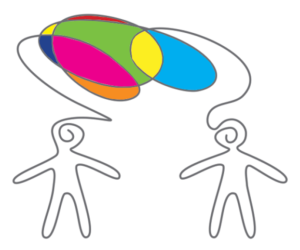by Jason Campbell, M.L.S., Partnership Leader
 In partnership systems, we strive to negotiate with the focus on how we can actualize the greatest benefit of all.? We are given support of this strategy in the “magic dance” of negotiation as the following statement outlines how striving for the benefit of all directly benefits us as well.? It states, ?An intelligent person can benefit from others without hurting them, as a bee can sip from the nectar of a flower without harming it.? ?These words of beauty-in-relationship evidence the ultimate nature of mind and the importance of knowing that when we get stuck in ordinary mind and power-over thought patterns we limit the possibility of our outcomes and become afflicted with things like stress, depression, panic attacks, and physical illnesses.
In partnership systems, we strive to negotiate with the focus on how we can actualize the greatest benefit of all.? We are given support of this strategy in the “magic dance” of negotiation as the following statement outlines how striving for the benefit of all directly benefits us as well.? It states, ?An intelligent person can benefit from others without hurting them, as a bee can sip from the nectar of a flower without harming it.? ?These words of beauty-in-relationship evidence the ultimate nature of mind and the importance of knowing that when we get stuck in ordinary mind and power-over thought patterns we limit the possibility of our outcomes and become afflicted with things like stress, depression, panic attacks, and physical illnesses.
 The life spectrum is much concerned with the exploration of our environments, the investigation of things and of experiences for which we are attracted, and the development of manipulative behaviors?(positive?and negative) akin to the outcome we ultimately desire of our experiences.? The psychology of the pre-determinants for these behaviors and the attachment to these behaviors tells us that these patterns are set early in life and, thus, the default modes of our behaviors and go-to ways of relating are as complicated to change as the side of the road we drive on.? However, when we recognize the healthy seeds of partnership narratives and further recognize partnership forming behaviors that we can model, then the challenge is less daunting than one might imagine.
The life spectrum is much concerned with the exploration of our environments, the investigation of things and of experiences for which we are attracted, and the development of manipulative behaviors?(positive?and negative) akin to the outcome we ultimately desire of our experiences.? The psychology of the pre-determinants for these behaviors and the attachment to these behaviors tells us that these patterns are set early in life and, thus, the default modes of our behaviors and go-to ways of relating are as complicated to change as the side of the road we drive on.? However, when we recognize the healthy seeds of partnership narratives and further recognize partnership forming behaviors that we can model, then the challenge is less daunting than one might imagine.
?An?intelligent person can benefit from others without hurting them, as a bee can sip from the nectar of a flower without harming it.?
For the cultural transformation we seek to bring to fruition with our work, a holistic framework that includes domination systems and includes partnerships systems must be sustained in order for the greatest benefit of this change to be actualized.? For this to be realistic, a new framework of negotiating behaviors and understanding of individual styles is necessary. Quantum Negotiation is a program designed by Karen Walch that looks at how individuals negotiate with each other impacts the culture and impacts the individual from the analysis of 5 human dimensions.? It uses a Quantum Negotiation Profile that supports mindfulness of our human conditioning and preferences to grow the awareness of our social behaviors.? The authenticity of implementing this heightened sense of awareness of our behaviors and the affect of those behaviors towards one another can only be adopted when practiced in every area of our lives – including our home life, our family system.
Behaviors complimentary to negotiation styles are exhibited in early childhood and continue into the later stages of adulthood.? I am sure we can each recall being witness to the innocence of childhood where a group of children is playing and one child offers another a toy to play with in order to get control of some other toy being played with at that moment.? We do not typically categorize these behaviors of exchange as manipulative, however it is the start of the mind thought – how can I get what I want through using what I already have.? This is the foundation of domination systems negotiation.? The early implication of control, rewards and benefits is far-reaching from the onset of these primary interactions.? It strengthens the power-over mentality and conditions the human experience to sense satisfaction and bliss only when we achieve what we are after – what we desire and with what we form an attachment.? In domination systems,??the?game? then becomes how can I get what it is that exhibits the most power, the ultimate desire-attachment of our global society.
The black hole of the domination system of systems is that the additional stressors of domination tactics and strategy are a cause for withdrawal, for protective behaviors and for less trust.? In domination negotiation, our behaviors, judgments, and emotions are conditioned by what is expected, reinforced, and rewarded.? When we recognize that we are in the black hole, we must step up and step out in order to strengthen and preserve the partnership within.? Without the guilt and shame of power-over paradigms, we can recognize our unconscious value drivers and then work with the ultimate nature of the mind – further developing the negotiation skillset and the ability to use a broad behavioral repertoire in a partnership-sensitive way.
Watch the video: May 16, 2019 Partnership Negotiations webinar
Quantum Negotiation invites you to join the new Quantum Buoyancy Community space on Mighty Networks. To learn more, contact Jason Campbell.
Jason Campbell is a graduate student at the Thunderbird School of Global Management, Arizona State University, where he received his Master of Legal Studies at the Sandra Day O’Connor College of Law.? He is a health and wellness practitioner, a Bon Dzogchenpo, a nature conservationist & an animal enthusiast as well. Contact Jason: jtcampb3@tbird.asu.edu





[…] Traducci?n: Marta Mond?jarImagen: Myriam Zilles en PixabayArt?culo original: The Authenticity of Negotiating Partnerships […]